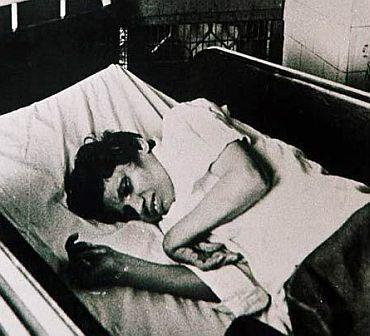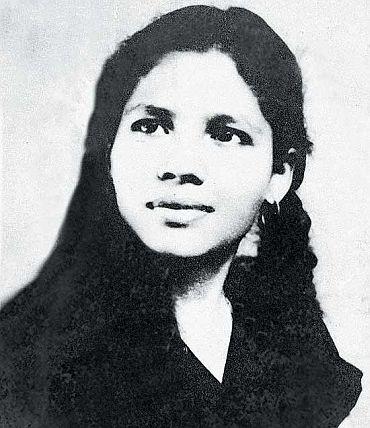
In a keenly-awaited verdict, the Supreme Court on Monday dismissed a plea for mercy killing on behalf of a 60-year-old nurse, living in a vegetative state for the last 37 years in a Mumbai hospital after a brutal sexual assault.
A bench of justices Markandey Katju and Gyan Sudha Mishra dismissed the plea filed on behalf of KEM hospital nurse Aruna Ramachandra Shanbaug, saying that while active euthanasia (mercy killing) was illegal, yet "passive euthanasia" can be permissible in exceptional circumstances.
The petition filed by activist Pinki Virani on Shanbaug's behalf contended that she cannot see or speak properly and keeping her alive violates her right to live with dignity.
The apex court said that as per the facts and circumstances of Aruna's case, medical evidence and other material suggest that the victim need not be subjected to euthanasia.
The bench, however, said since there is no law presently in the country on euthanasia, mercy killing of terminally ill patient "under passive euthanasia doctrine can be resorted to in exceptional cases."
The bench clarified that until Parliament enacts a law, its judgement on active and passive euthanasia will be in force.
...

Aruna, who is now nearly 60-years-old, slipped into coma after a brutal attack on her at Mumbai's King Edward Memorial Hospital by a staffer on November 27, 1973.
The plea for Aruna's mercy killing had been made by writer Pink Virani, who had told the court in her petition that the nurse slipped into coma after she was attacked by a sweeper who wrapped a dog chain around her neck and yanked the victim with it.
According to the petition, he had tried to rape the victim but finding that she was menstruating, indulged in anal sex. To immobilise her during this act, he twisted the chain around her neck and fled the scene after the committing the heinous offence, it had said.
Virani had said that due to strangulation by the chain, the supply of oxygen to the brain stopped and the cortex got damaged. She also had brain stem contusion injury associated with cervical cord injury.
According to the petitioner, in the last 37 years after the incident, Aruna has become "featherweight" and her bones are brittle. She is prone to bed sores.

Her wrists are twisted inward, teeth decayed and she can only be given mashed food on which she survives, Virani had said, adding that Aruna is in a persistent vegetative state, her brain is virtually dead and she is oblivious to the outside world.
She can neither see nor hear anything nor can she express herself or communicate in any manner, whatsoever, she had said in her plea for mercy killing.
The bench had reserved its verdict on the plea for subjecting Aruna to mercy killing after hearing detailed arguments by various parties on the question of allowing euthanasia.
Several counsel who made submissions on the controversial issue for permitting mercy killing included Attorney General G E Vahanvati, amicus curiae T R Andhyarujina, Ballabh Sisodia for the hospital and Shekhar Naphade appearing for the petitioner and Virani.
During the arguments, the government had taken the stand that there is no provision either under the statute or the Constitution to permit euthanasia.
Sisodia had opposed the plea contending that the hospital staff, particularly the nurses and the doctors, have been taking "dedicated care" of Aruna for the past 37 years and they were opposed to the plea for her killing.